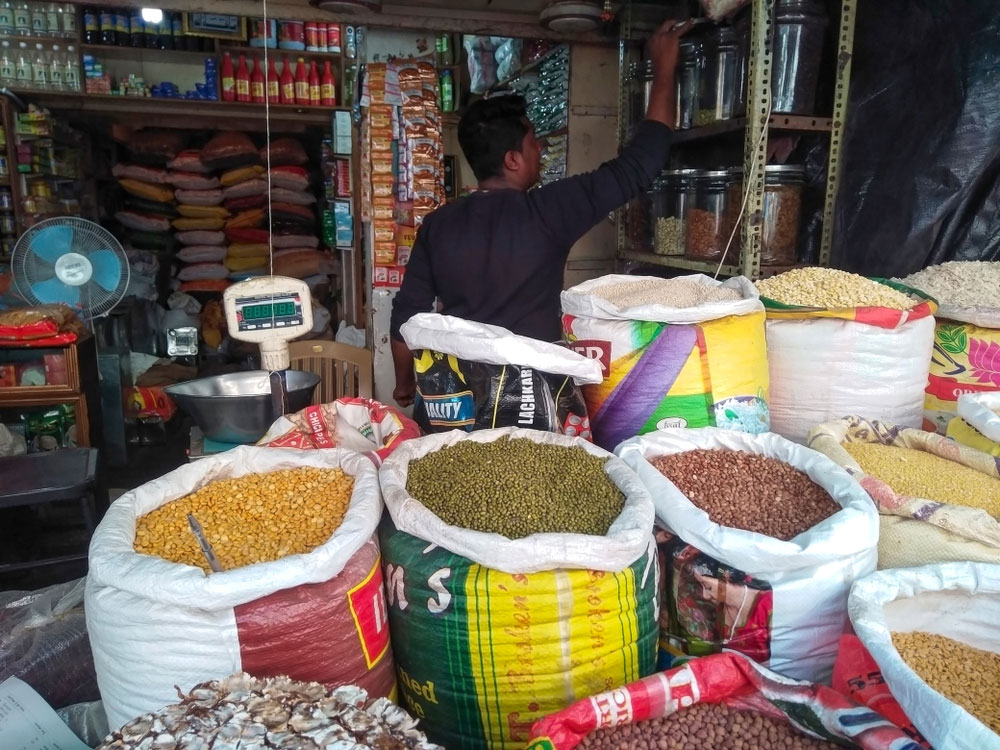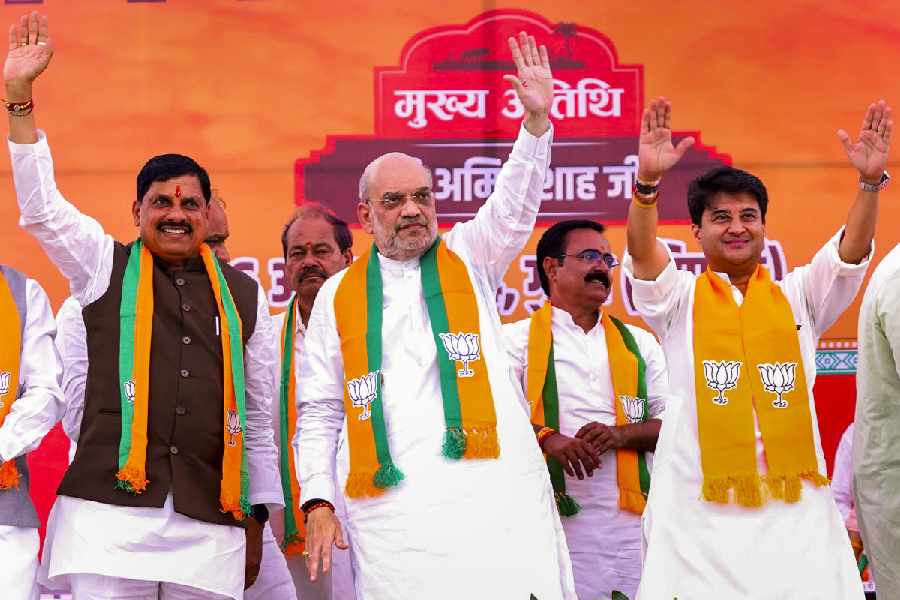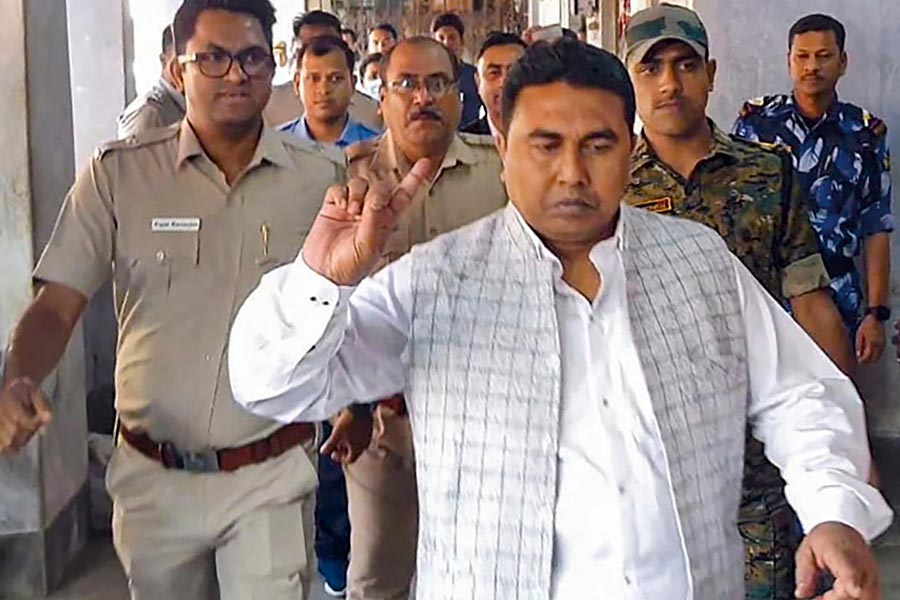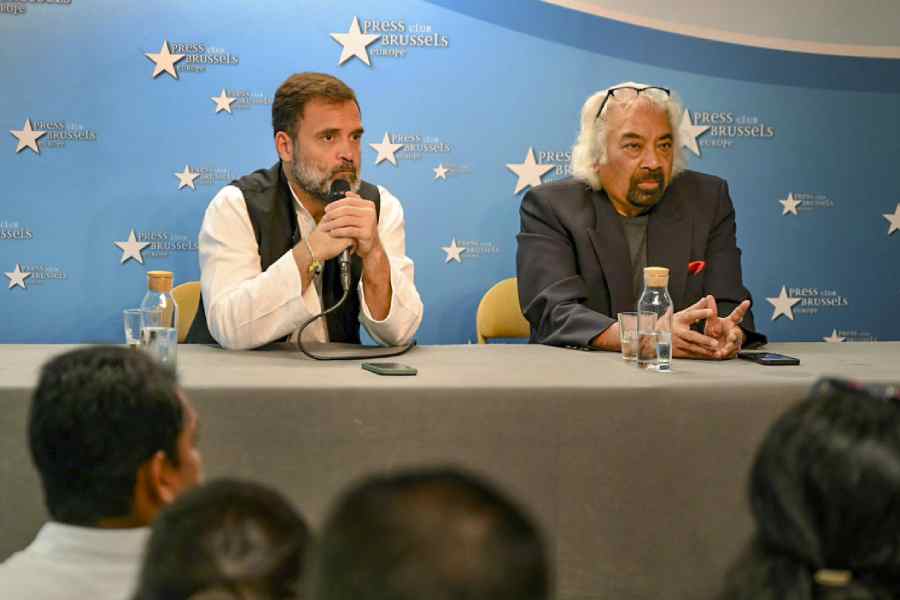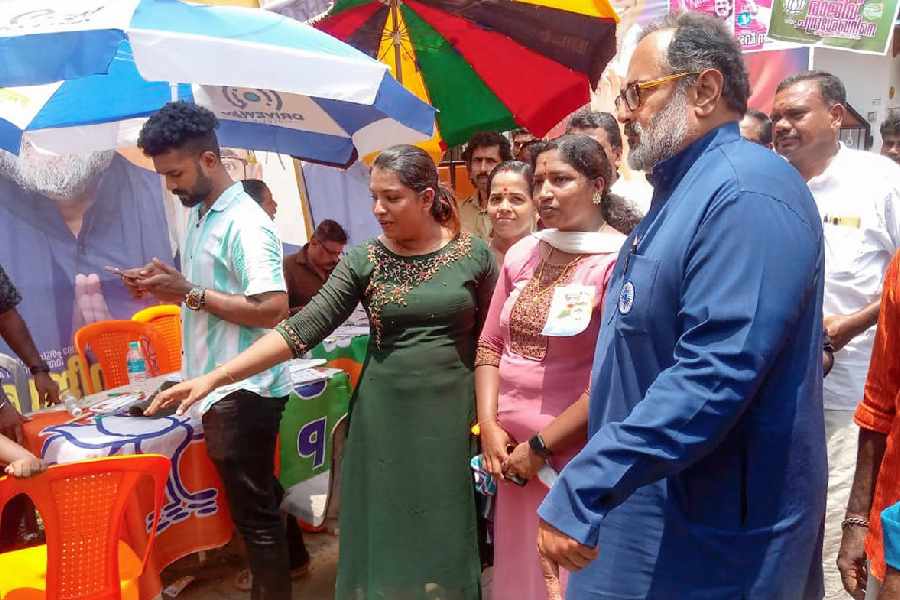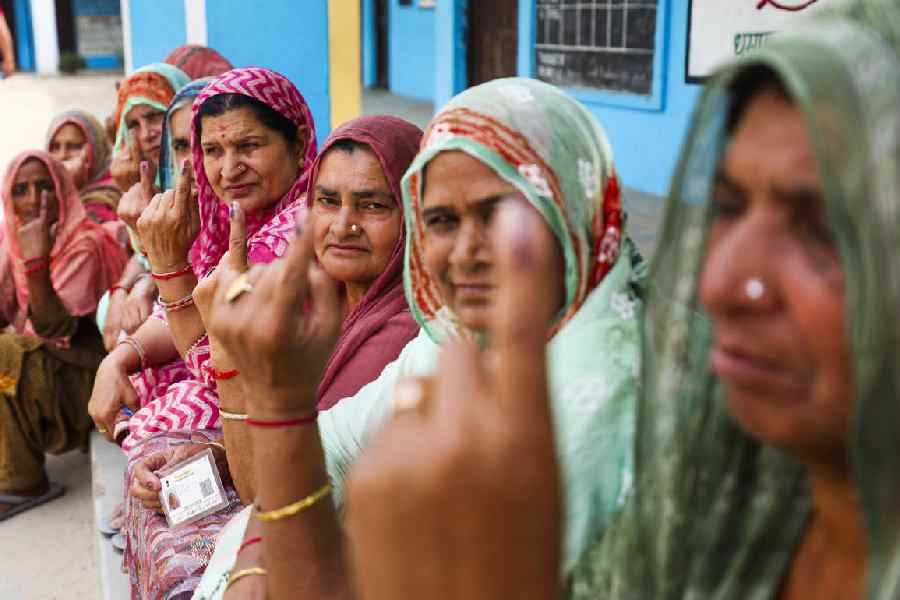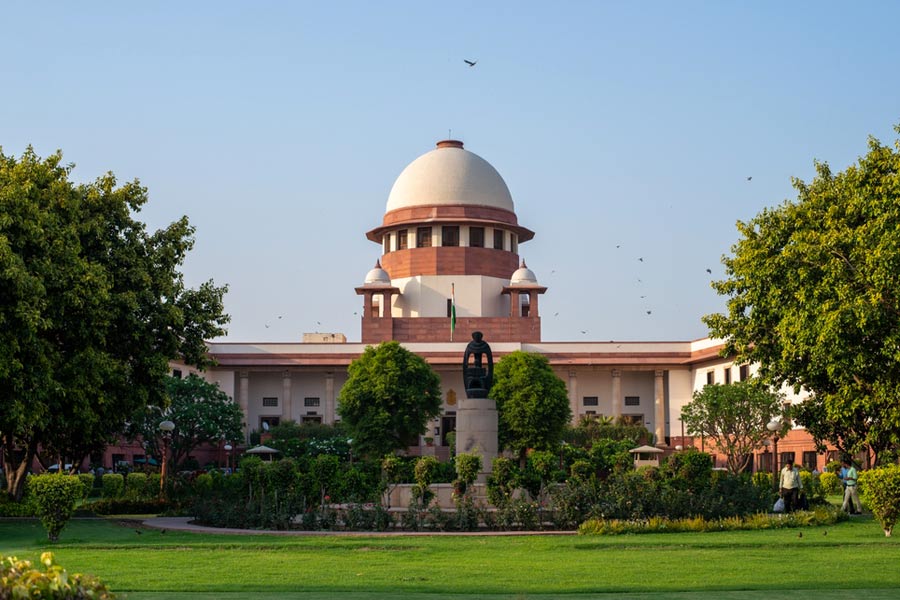The owner of a small eatery in a Metiabruz bylane feeds the day’s excess food to poor and homeless people in the neighbourhood. The 58-year-old was seen standing in a queue for free ration last week, much to the surprise of the volunteers of the NGO that had organised the camp.
“Kismat ka khel hai (It’s a twist of fate),” the man said when a volunteer asked why was he standing in queue for ration. The shop has been shut for over a fortnight and he did not have money to sustain his big family beyond a month, the man explained.
Similar faces have been spotted in queues for free food across the city. These are people who would take pride in buying their ration with their own hard-earned money. Most of them had never survived on free food before the lockdown.
One of them is a man in his forties who lives near Palm Avenue and earns around Rs 8,000 per months as a contractual peon in a school in south Calcutta and a few thousand more from a job with a cable operator, collecting monthly payments from subscribers.
“The part-time income is extremely important for me. But that has stopped now. The residents are not letting outsiders into their homes,” said the man who lives with his aged parents, wife and an eight-year-old son.
He has collected free ration on two occasions during the lockdown, the first time he went to the donor’s house at night. “I got the token but was too embarrassed to stand in a queue for free food. I went to his office in the dark and collected the ration,” the man told Metro.
The daily wage earners — rickshaw-pullers, ragpickers, masons and their likes — are worse hit than drivers, domestic help and others in the informal sector, many of whom are still getting their salaries even if they don’t step out for work.
Grocery shops are operational in markets across the city. There is no acute shortage of essentials such as cereals, pulses, oil and potatoes.
But many are accepting free ration now because they want to keep the little cash they have for an uncertain future.
The wife of an app-cab driver stood in a queue at a gurdwara last week to collect free ration. The man used to drive a taxi for decades before he bought his own car.
“I have two children. I have not driven my cab for several days now. I have not earned a rupee. But I am having to pay the monthly instalments for the car loan. I have to store ration. What is the option?” said the man, a Taratala resident.
A social worker associated with several NGOs distributing food to the underprivileged said he got a call from a member of the residents’ committee of a housing complex who requested him to arrange food for the guards of the building.
The social worker suggested the residents start a community kitchen to help the guards. The caller disconnected the phone.
“It is not fair to always depend on NGOs. People who are a little better off can together contribute for the underprivileged in their neighbourhood. That would solve a lot of problems,” the social worker told Metro. “That will also give a sense of security to many people. People at the bottom of the pyramid and ones just above the bottom.”
A 25-year-old woman, who works as a domestic help in New Alipore, has been granted indefinite leave by her employers, without affecting her salary. Her husband works in a small factory that makes bags. The factory is shut and the husband is out of work. The woman got a week’s ration free, thanks to her employer who is associated with an NGO.
“Standing in the queue was embarrassing. I had my face veiled in a dupatta. But I was there for my family, my son. So, it is okay. If need be, I will stand again,” said the help.

